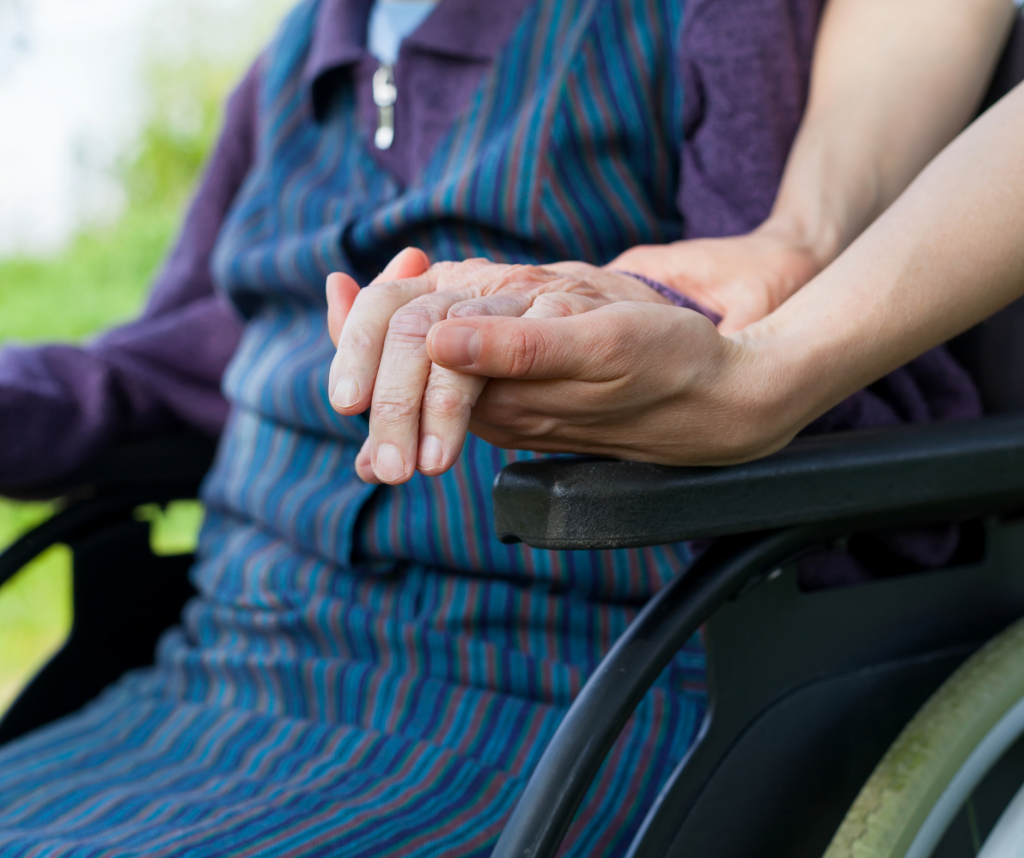
“We may each have our own individual Parkinson’s, but we all share one thing in common. Hope” – Michael J. Fox
If you have a loved one with Parkinson’s, you know how difficult the disease can be to manage. Although sometimes it may feel out of reach, a good quality of life is still very possible. It’s all about symptom management and making sure you and your loved one have the right support in place. That includes making sure that you are taking care of yourself, too! Being a family caregiver can be stressful enough if your parent is healthy. But it can be especially tough when managing a disease like Parkinson’s.
In this article, we’ll outline a few ways to manage symptoms and why it can make sense to bring in a caregiver to help your parent and you.
The key to good quality of life with Parkinson’s: symptom management
Parkinson’s disease has no cure, but there are many ways to manage symptoms. Perhaps the most common way is through medications, but there are also lifestyle changes that can help. One of these changes is getting regular exercise. According to the Parkinson’s Foundation:
“Research has shown that exercise can improve gait, balance, tremor, flexibility, grip strength, and motor coordination. So far, studies have shown:
- Engaging in any level of physical activity is beneficial, rather than being sedentary — this is associated with improved motor symptoms.
- For people with mild to moderate PD, targeted exercises can address specific symptoms. For example, aerobic exercise improves fitness, walking exercises assist in gait, and resistance training strengthens muscles. One study showed that twice-a-week tango dancing classes helped people with PD improve motor symptoms, balance, and walking speed.
- Exercise may also improve cognition, depression, and fatigue
One study showed that people with PD who exercised regularly for 2.5 hours a week had a smaller decline in mobility and quality of life over two years.”
Exercise isn’t the only lifestyle change that helps with symptom relief. Getting enough rest, staying hydrated, and eating a healthy diet have also been shown to be beneficial. As the family caregiver, it can be difficult to ensure your parent is implementing all these measures – on top of managing your own life! That’s when bringing in non-medical in-home care can be a great supplement to your efforts.
How in-home care works with Parkinson’s disease
In-home caregivers provide things like companionship, transportation to medical appointments, help with errands, household chores, personal hygiene, and meal preparation. This service is valuable for any senior who wants to stay independent in their home. But many of our caregivers are trained to understand the unique needs of clients who have Parkinson’s disease. Parkinson’s Disease is one of our eight specialty programs, and the training they receive includes:
- The fundamentals of Parkinson’s, including how it affects the brain, the cardinal features and stages, risk factors, and the ten most common signs and symptoms
- Identifying cognitive dysfunction vs. dementia, and understanding the symptoms and behavioral and emotional changes at each stage of the disease
- Addressing common challenges associated with Parkinson’s disease, such as communication, personal care, and mobility
- How to assess client’s abilities and document changes for care plan adjustments
- Recommended diet and exercise guidelines and specific health challenges faced by Parkinson’s patients, such as bone thinning and dehydration
A caregiver educated on Parkinson’s disease will better be able to communicate with your loved one and help with the specific challenges they face with ADLs (activities of daily living). They’ll also be able to assist with those things that help symptom management like exercise, eating a healthy diet, staying hydrated, getting enough rest, and medication reminders.
Last but not least, a caregiver can help with companionship and emotional support. Living with an incurable disease can take a toll on mental health, so having a caregiver to provide consistent support in that area can make a big difference.
If you choose to use a caregiver from an agency, there are additional things that may be done to make sure your loved one is well cared for. At Sequoia Senior Solutions, we have a tried-and-true process before we match a caregiver to a client. We perform a complimentary and personalized needs assessment, during which special care is taken to assign a caregiver who has the experience to meet the needs of your loved one. We also perform a home evaluation to ensure that your loved one is as safe as possible in their home.
Conclusion:
A caregiver can provide a much-needed break for family members while ensuring your parent stays safe and as comfortable as possible. Because they are specially trained, you’ll have peace of mind that your loved one will be in good hands.
If you’d like to learn more about our Parkinson’s Specialty Program and see if we’d be a fit for your situation, please reach out using this form to schedule a complimentary discovery call. A client service specialist would be happy to answer any questions you may have. And be sure to check out our other articles on Parkinson’s disease – written for family caregivers just like you.